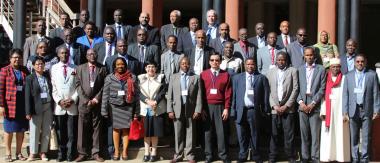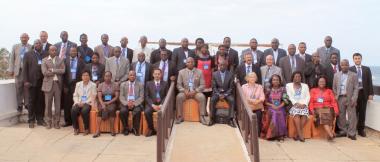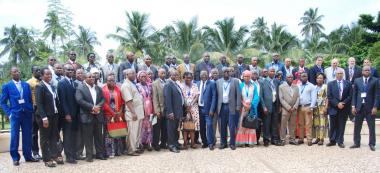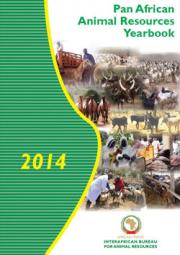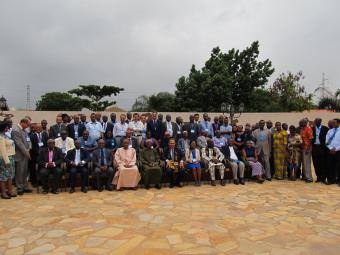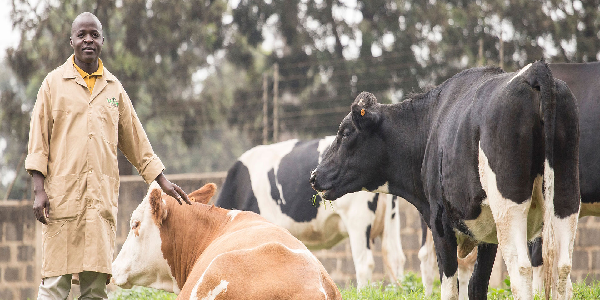
AU-IBAR, IGAD Center for Pastoral Areas & Livestock Development (IGAD/ICPALD) and East Africa Community (EAC), USAID, and the United States Department of Agriculture (USDA) have scheduled an online Meeting on the Standard Methods and Procedures in Animal Health (SMP-AH) for the East Africa Region on 21st July 2021. The participants for the meeting will include EAC and IGAD/ICPALD, USDA, USAID, all Chief Veterinary Officers, Heads of Surveillance and Epidemiology, Laboratory and Disease Control Sections within the Veterinary Authority of each Member State.
The objectives of the meeting are 1. Review of the status of implementation of the SMP-AH approach, lessons learned and areas for consolidation and 2. Identify capacity needs to reinforce competency-based capabilities for the control of trade-related Transboundary Animal Diseases (TADs).
The SMP-AH is operational in IGAD, where it is the coordinating disease control concept for about 350 million head of cattle, camels, sheep, and goats. Through a USAID and USDA funded project, AU-IBAR and IGAD Center for Pastoral Areas & Livestock Development (ICPALD) has facilitated the IGAD states in developing their implementation of the SMP-AH program. Having worked with the IGAD REC to develop their approach, AU- IBAR is thereby well experienced in facilitating this program and would be well-placed to coordinate its development and implementation across other Regional Economic Communities.
Various African Union member states have identified their priority animal diseases, and some have developed their corresponding disease control programs and plans. The SMP-AH could potentially be used to operationalize these disease control programs and ensure a more harmonized approach to trade-related disease control in livestock and animal products. This is especially important when the African Continental Free Trade Area (AfCFTA) Agreement, due to commence in January 2021, comes into effect.
The development hypothesis of the SMP-AH Project is that governments in the region can control endemic diseases that impinge on trade through coordinated and cooperative disease control approaches. This enables livestock owners to enhance both the production and productivity of their livestock. In turn, it could lead to increased trade to stabilize household livelihoods, increase food security overall, and improve nutrition and political stability throughout the continent.
The SMP concept is modeled on the U.S. State-Federal Disease Control Programs approach. The approach has an overarching coordinating authority (USDA APHIS Veterinary Services), a set of standards for each high-impact disease individually designed for the dynamics of that disease (Uniform Methods and Rules), and an implementing authority in each state of the U.S. led by the state Veterinarian. This organizational structure has been used for decades coordinating the 50 U.S. states and is a well-proven concept for large-scale harmonization of livestock disease management.
The SMP-AH is operational in IGAD, where it is the coordinating disease control concept for about 350 million head of cattle, camels, sheep, and goats. Through a USAID and USDA funded project, AU-IBAR and IGAD Center for Pastoral Areas & Livestock Development – ICPALD, has facilitated the IGAD states in developing their implementation of the SMP-AH program. Having worked with the IGAD REC to develop their approach, AU- IBAR is thereby well experienced in facilitating this program and would be well-placed to coordinate its development and implementation across other Regional Economic Communities.



